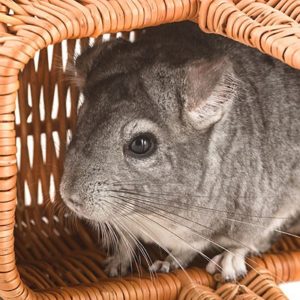Do you have a pocket pet in your Fayetteville NC home? Your little one will definitely add his own charm to your household. These little pets are quite endearing, and it is super cute when they greet you with those bright eyes and soft whiskers. Just like any other pets, pocket-sized pals enjoy special treats and attention.
Here are some suggestions on proper treats for pocket pets:
Guinea Pigs
These cuties can enjoy bits of orange, carrots, pea pods, pears, apples, peaches, strawberries, pineapple, papaya, blueberries, cabbage, or kale. You can also feed your guinea dandelions, clover and wild grass from your yard, as long as they haven’t been treated with harmful chemicals.
Hamsters
Some of the treats you can give a hamster include grapes, kale, apples, bananas, broccoli, bean sprouts, cucumber, melons, corn on the cob, peas, celery, grass, and dandelion leaves. Since hamsters get quite a bit of protein in their natural diet, you can also feed them small bits of cooked chicken or turkey, a little dry cat food, and boiled or scrambled eggs. Crickets and mealworms, which you can get live, canned, or dried, are also great treats for hamsters.
Gerbils
You can feed your gerbil quite a variety of snacks. Small bits of fruits or veggies are good options. Start out with small amounts, to make sure your gerbil doesn’t get diarrhea. You can give your little buddy dandelion greens, berries, apples, carrots and broccoli. Occasional nuts; unsweetened, whole-grain breakfast cereal; and small bits of egg or cheese are also fine. Gerbils love to chew on dog biscuits, though they should only get these treats occasionally. They also are quite enthusiastic over the occasional mealworm. Avoid giving your gerbil raw potatoes, onions, rhubarb leaves, or kidney beans.
Chinchillas
Chinchillas have very sensitive tummies, so you don’t want to experiment with giving them treats. Fatty foods and foods with a lot of sugar can be quite harmful to these little ones, so avoid these, as well as foods with high oil content. Dried rose hips are an excellent choice, and can be fed daily. You can also give a chinchilla fresh or dried fruit a couple times a week. A couple of sunflower seeds are also suitable treats. The occasional raisin is also acceptable, but only give your chinchilla one or two a week, as his sensitive tummy will not be able to handle much sugar. With the exception of carrots, you should never feed a chinchilla vegetables.
Always be sure to carefully wash any fruits or veggies you give your Fayetteville NC pocket pet!





